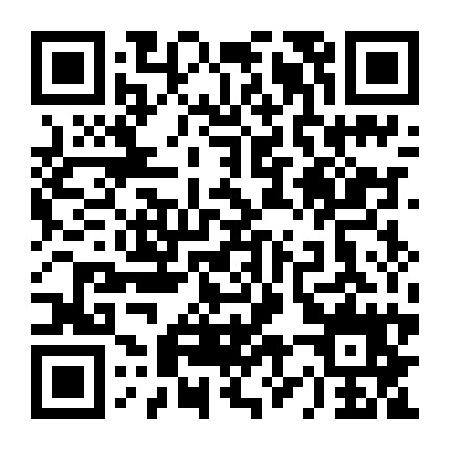Passage 3
What do consumers really want? That's a question market researchers would love to answer. But since people don't always say what they think, marketers would need direct access to consumers' thoughts to get the truth.
Now, in a way, that is possible. At the “Mind of the Market” laboratory at Harvard Business School, researchers are looking inside shoppers' skulls to develop more effective advertisements and marketing pitches. Using imaging techniques that measure blood flow to various parts of the brain, the Harvard team hopes to predict how consumers will react to particular products and to discover the most effective ways to present information. Stephen Kosslyn, a professor of psychology at Harvard, and business school professor Gerald Zaltman, oversee the lab. “The goal is not to manipulate peoples' preferences,” says Kosslyn, “just to speak to their actual desires.” The group's findings, though still preliminary, could radically change how firms develop and market new products.
The Harvard group use position emission topography (PET) scans to monitor the brain activity. These PET scans, along with other non-invasive imaging techniques; enable researchers to see which parts of the brain are active during specific tasks (such as remembering a worD.. Correlations have been found between blood flow to specifc areas and future behavior. Because of this, Harvard researchers believe the scans can also predict future purchasing patterns. According to an unpublished paper the group produced, “It is possible to use these techniques to predict not only whether people will remember and have specific emotional reactions to certain materials, but also whether they will be inclined to want those materials months later.”
The Harvard group is now moving into the next stage of experiments. They will explore how people remember advertisements as part of an effort to predict how they will react to a product after having seen an ad. The researchers believe that once key areas of the brain are identified, scans on about two dozen volunteers will be enough to draw conclusions about the reactions of specific segments of the population. Large corporations-including Coca Cola, Eastman Kodak, General Motors, and Hallmark-have already signed up to fund further investigations.
For their financial support, these firms gain access to the experiments but cannot control them. If Kosslyn and Zaltman and their team really can read the mind of the market, then consumers may find it even harder to get those advertising jingles out of their heads.
11. Which of the following statements can be the best title for this passage?
A. Reading the Mind of the Market
B. Controlling the Consumers' Preferences
C. Improving the Styles of Advertising
D. Finding Out the Way to Predict
12. Why do the Harvard researchers use scientific technology in the experiments?
A. Because they don't believe the surveys done by the marketers can lead to the truth.
B. Because they are asked by the marketers to find a direct way to read the consumers' thoughts.
C. Because they want to find out how the ads influence people's brain activity and emotional responses etc.
D. Because they expect that their experiments can basically alter the marketing strategies of products.
13. Which of the following is not true according to the passage?
A. Sometimes people will conceal what they think when being questioned by the market researchers.
B. Stephen Kosslyn and Gerald Zaltman overlook the experiments and criticize the purpose of the study.
C. Harvard researchers have found the corresponding relations between people's brain and behavior.
D. There are many large organizations endorsing and financing the Harvard group's further investigation.
14. What does “to speak to” in the last sentence of the second paragraph mean?
A. to talk to B. to say to
C. C. to communicate to D. to respond to
15. The last sentence of this passage implies that__________.
A. If the experiments' results can be applied to the practice, the customers will be very likely to buy things according to the ads.
B. If the Harvard group can succeed in finishing the research, they will use it in attracting more and more and more and more consumers into the market.
C. The financial supporting corporations such as Coca Cola, General Motors can employ the experiments in their own marketing.
D. The consumers may discover that those ads will always annoy them by jingling out of their heads and cause them headaches.
Passage 4
Real policemen, both Britain and the United States hardly recognize any resemblance between their lives and what they see on TV—if they ever get home in time. There are similarities, of course, but the cops don't think much of them.
The first difference is that a policeman's real life revolves round the law. Most of his training is in criminal law. He has to know exactly what actions are crimes and what evidence can be used to prove them in court. He has to know nearly as much law as a professional lawyer, and what is more, he has to apply it on his feet, in the dark and rain, running down an alley after someone he has to talk to.
Little of his time is spent in chatting to scantily clad ladies or in dramatic confrontations with desperate criminal. He will spend most of his working life typing millions of words on thousands of forms about hundreds of sad, unimportant people who are guilty—or not—of stupid, petty crimes.
Most television crime drama is about finding the criminal; as soon as he's arrested, the story is over. In real life, finding criminals is seldom much of a problem. Except in very serious cases like murders and terrorist attacks—where failure to produce results reflects on the standing of the police—little effort is spent on searching. The police have an elaborate machinery which eventually shows up most wanted men.
Having made an arrest, a detective really starts to work. He has to prove his case in court and to do that he often has to gather a lot of different evidence. Much of this has to be given by people who don't want to get involved in a court case. So as well as being overworked, a detective has to be out at all hours of the day and night interviewing his witnesses and persuading them, usually against their own best interests, to help him.
A third big difference between the drama detective and the real one is the unpleasant moral twilight in which the real one lives. Detectives are subject to two opposing pressures: first as members of a police force they always have to behave with absolute legality, secondly, as expensive public servants they have to get results. They can hardly ever do both. Most of the time some of them have to break the rules in small ways.
If the detective has to deceive the world, the world often deceives him. Hardly anyone he meets tells him the truth. And this separation the detective feels between himself and the rest of the world is deepened by the simple mindedness—as he sees it—of citizens, social workers, doctors, law makers, and judges, who, instead of stamping out crime punish the criminals less severely in the hope that this will make them reform. The result, detectives feel, is that nine tenths of their work is reaching people who should have stayed behind bars. This makes them rather cynical.
16. It is essential for a policeman to be trained in criminal law__________.
A. so that he can catch criminals in the streets
B. because many of the criminals he has to catch are dangerous
C. so that he can justify his arrests in court
D. because he has to know nearly as much about law as a professional lawyer
17. The everyday life of a policeman or detective is__________.
A. exciting and glamorous
B. full of danger
C. devoted mostly to routine matters
D. wasted on unimportant matters
18. When murders and terrorist attacks occur the police__________.
A. prefer to wait for the criminal to give himself away
B. spend a lot of effort on trying to track down their man
C. try to make a quick arrest in order to keep up their reputation
D. usually fail to produce results
19. The real detective lives in “an unpleasant moral twilight” because__________.
A. he is an expensive public servant
B. he must always behave with absolute legality
C. he is obliged to break the law in order to preserve it
D. he feels himself to be cut off from the rest of the world
20. Detectives are rather cynical because__________.
A. nine tenths of their work involves arresting people
C. hardly anyone tells them the truth
C. society does not punish criminals severely enough
D. too many criminals escape from jail
考博必备!历年真题及答案
考博精品好课,就选新东方!

 资料下载
资料下载
【必看】考博英语词汇10000例精解
发布时间:2020-09-02关注新东方在线服务号
回复【10000】免费获取
医学考博英语作文核心基础词汇整理
发布时间:2020-04-15关注新东方在线服务号
回复【医学考博】获取
医学考博英语阅读理解练习资料
发布时间:2020-04-15关注新东方在线服务号
回复【医学考博】获取
法学考博英语高频词汇word版
发布时间:2020-04-15关注新东方在线服务号
回复【医学考博】获取
医学博士英语统考真题及解析
发布时间:2019-12-26关注新东方在线服务号
回复【考博真题】获取
全国医学博士外语统一考试真题
发布时间:2019-12-26关注新东方在线服务号
回复【考博真题】获取
中科院考博英语复习备考实战经验分享
发布时间:2019-12-26关注新东方在线服务号
回复【考博经验】获取
中科院考博英语真题练习资料
发布时间:2019-12-26关注新东方在线服务号
回复【考博真题】获取

关注新东方在线服务号
关注新东方在线服务号,
免费获取考博必看干货资料

 推荐阅读
推荐阅读
沈阳工业大学2022年博士研究生招生考试英语真题B卷
来源 : 沈阳工业大学 2022-12-26 16:19:18 关键字 : 沈阳工业大学2022博士英语真题
沈阳工业大学2022年博士研究生招生考试英语真题A卷
来源 : 沈阳工业大学 2022-12-26 16:18:19 关键字 : 沈阳工业大学2022博士英语真题
沈阳工业大学2021年博士研究生招生考试英语真题B卷
来源 : 沈阳工业大学 2022-12-26 16:09:06 关键字 : 沈阳工业大学2021博士英语真题
沈阳工业大学2021年博士研究生招生考试英语真题试卷A卷
来源 : 沈阳工业大学 2022-12-26 16:07:31 关键字 : 沈阳工业大学2021博士英语真题
沈阳工业大学2020年博士研究生招生考试英语真题试卷
来源 : 沈阳工业大学 2022-12-26 16:04:42 关键字 : 沈阳工业大学2020年博士英语真题


 考博好课推荐
考博好课推荐
基础薄弱,备考迷茫,送纸质资料
价格 : ¥2280元
资深教师,教学简明,直接有效!
价格 : 0元
 资料下载
资料下载
关注新东方在线服务号
回复【10000】免费获取
关注新东方在线服务号
回复【医学考博】获取
关注新东方在线服务号
回复【医学考博】获取
关注新东方在线服务号
回复【医学考博】获取
关注新东方在线服务号
回复【考博真题】获取
关注新东方在线服务号
回复【考博真题】获取
关注新东方在线服务号
回复【考博经验】获取
关注新东方在线服务号
回复【考博真题】获取

 阅读排行榜
阅读排行榜
 相关内容
相关内容